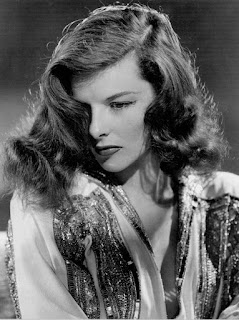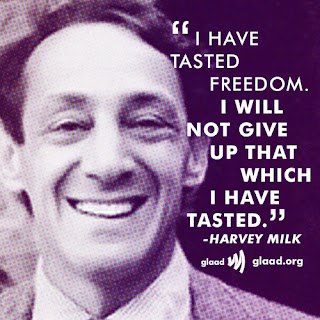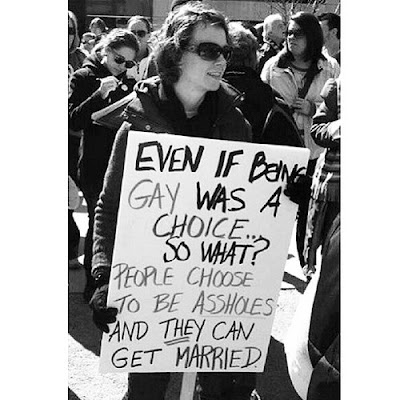Katharine Hepburn, A woman before her
time.
Katharine Hepburn was an icon on screen
and an inspiration in real life. Known for her fierce independence and quick
wit, stage and screen actress Kate Hepburn was an unconventional movie star who
did not keep her views quiet. She was very independent in her thoughts and
actions and she holds a special place in American film and popular culture.
A true artist and an unlikely
Hollywood star, Kate Hepburn was born in Hartford, Connecticut on May 12, 1907.
She was the second of six children. Her father was a surgeon and her mother was
an early feminist: They educated their children about important political and
social subjects and they encouraged her to speak out. The Hepburn’s were
leaders in radical causes that were not popular in conservative Hartford. Neighbors
threw bricks through their windows and the children were frequently forced to
defend themselves in fights.
 Kate Hepburn acted on and off Broadway
before landing a role in the 1932 film A
Bill of Divorcement, opposite John Barrymore. She is a theatric veteran and
appeared in over 50 motion pictures. The characters Hepburn played were usually
wealthy and intelligent, often strong and independent. She liked to play the
roles of strong women, yet these tough characters tended to be humbled in some
form and revealed to have a hidden vulnerability.
Kate Hepburn acted on and off Broadway
before landing a role in the 1932 film A
Bill of Divorcement, opposite John Barrymore. She is a theatric veteran and
appeared in over 50 motion pictures. The characters Hepburn played were usually
wealthy and intelligent, often strong and independent. She liked to play the
roles of strong women, yet these tough characters tended to be humbled in some
form and revealed to have a hidden vulnerability.
In a career lasting several decades,
Katharine was an iconic figure of twentieth century film. Her lifestyle was
unconventional for the time and through her acting she helped redefine
traditional views of women’s role in society. She was acted in the suffrage
movement, leading the Connecticut fight to win voting rights for women. Kathy
frequently accompanied her mother passing out brochures and marching in
parades. She embodied feminine beauty but also an inner strength and reserve.
She was an important cultural icon and a forerunner for women of the 20th
century who lived with greater independence and freedom of action.
Hepburn is one of America's most celebrated
actresses, and I had
never thought of her as a political person. Turns out, Katherine Hepburn was an
extreme liberal, pro abortion and openly atheistic: A mind so clear,
opinionated, unafraid, Kathy lived life somewhat reclusively but she lived it
the way she wanted. She was truly an American original and one of the most
admired women of her time. Hepburn was an icon and I think it’s time that
people began to appreciate her political impact.
Hepburn wanted to face the movie industry
in her own way, and she was known for being fiercely private and would not talk
to fans for much of her career. She often displayed a standoff attitude to the
media. While she was demanding, she
retained a sense of humility and humanity: She distanced herself from the
celebrity lifestyle; she wore casual clothes that went strongly against
convention in era of glamour. She was dismissive toward other female actresses
and reluctant to sign autographs or give interviews. She even turned down an
offer to run for the US Senate. However, Katharine’s relentless energy and
enthusiasm for life with a headstrong independence became key to her celebrity
status. She was famously blunt and outspoken and critics either loved or hated
her.
In Hollywood today, leading men are
permitted to age on screen while their female colleagues are required to keep
at least one toe dipped in the fountain of youth, Katharine Hepburn defied
sexist ageism. Liberalism is a political philosophy, a worldview founded on
ideas of liberty and equality for all. Hepburn’s dream for a better tomorrow
and her hope for equality, was soon shared by a man who symbolized the freedom
to live with authenticity.
At a time when homosexuality was
considered a mental disorder, a liberal activist found his voice as a leader.
Harvey Milk became the city’s first openly gay officer to be elected to office
in the United States. It was a time when being gay was illegal and there was
widespread harassment and victimization of homosexuals. Milk influenced our
social perceptions and human sensibilities. The story of Harvey Milk represents
his struggles as an American gay activist who fought for gay rights. His desire
for identifying genuine cultural differences and similarities across difference
lines, Milk pointed his supporters in the direction of the desperate young
person struggling in isolation with his sexuality.
A visionary civil and human rights
leader, Harvey was born on May 22, 1930, in Woodmere, New York. Harvey and his
one sibling came from a small middle-class Jewish family. He knew he was gay by
the time he attended high school, where he was a popular student with
wide-ranging interests. His courage, passion, and sense of justice rocked a
country and stirred the very core of a put down and pushed out community,
bringing forward new hope and a new vision of freedom. Harvey showed us all
what one person, standing up loudly and clearly, against a fierce societal fear
and prejudice can accomplish. He created a rich and vivid message of hope and
an enduring dream, teaching us how to create our own and leaving them for us to
realize.
In the 1970s, people regarded gays and
lesbians as very different and dangerous people, and the public and media
treated them as a scourge. He suffered intolerance and unfairness, and the fate
of a figure like him is destined to be fallen. But Milk was a skilled
politician and a kind man: A Simple publicity stunt came to define Milk’s
career as a official, not only because he knew how to garner media attention
for his cause, but also because it represented his desire to solve everyday
problems.
Harvey’s election in 1977 took San
Francisco politics by a storm when the groundbreaking leader was elected to the
Board of Supervisors. His ability to mobilize gays and straights alike resulted
in the defeat of a statewide proposition to severely limit gays’ employment
rights. The media labeled Harvey Milk as someone who belongs to a minority
group as ‘First gay on board,’ The world’s first openly gay elected officials,
and its most visible one, contributed to the freedom to millions of LGBT women
and men around the world.
Unfortunately, Harvey served less than a
year in public office before his brutal assassination. However, his life
profoundly changed a city, state, nation and a global community. His legacy of
fighting for gay rights has inspired a new generation of civic activists across
the United States, fighting for sexual equality and the expansion of civil
liberties for gays and lesbians.
Activism and change come in a variety of
venues. Katharine Hepburn and Harvey Milk are among a few fearless people who
tried to create social change in areas of sexual discrimination. Anyone can
make a difference in this world, whether it’s locally or nationally, it can
happen in small everyday actions as well as creative large-scale venues. The
media plays a critical role, but the most important steps we can take are
simple and can make a big difference.
‘Hope will never be silent.’ – Harvey Milk



